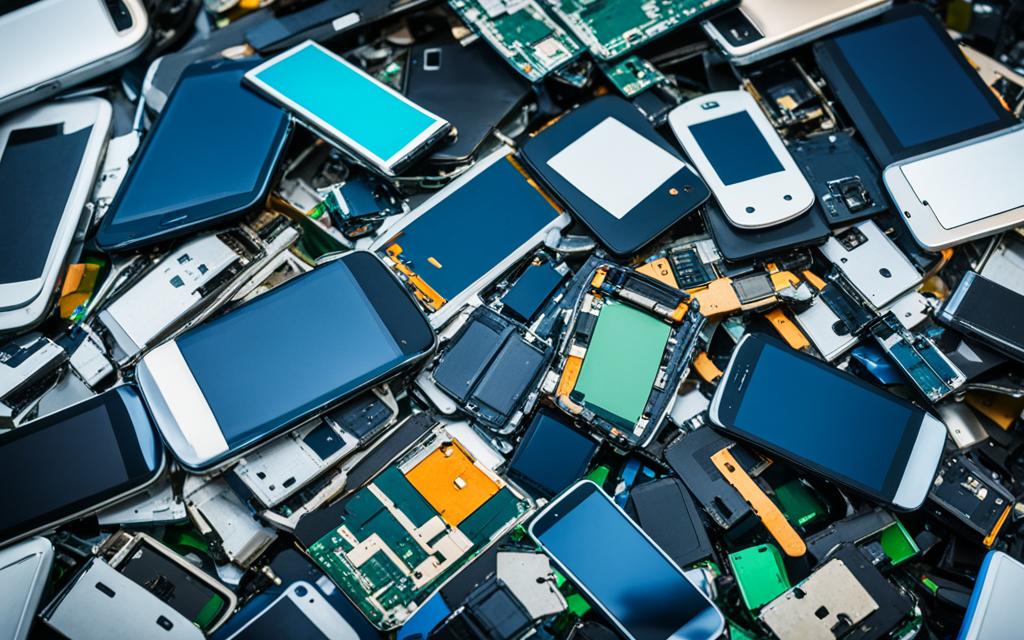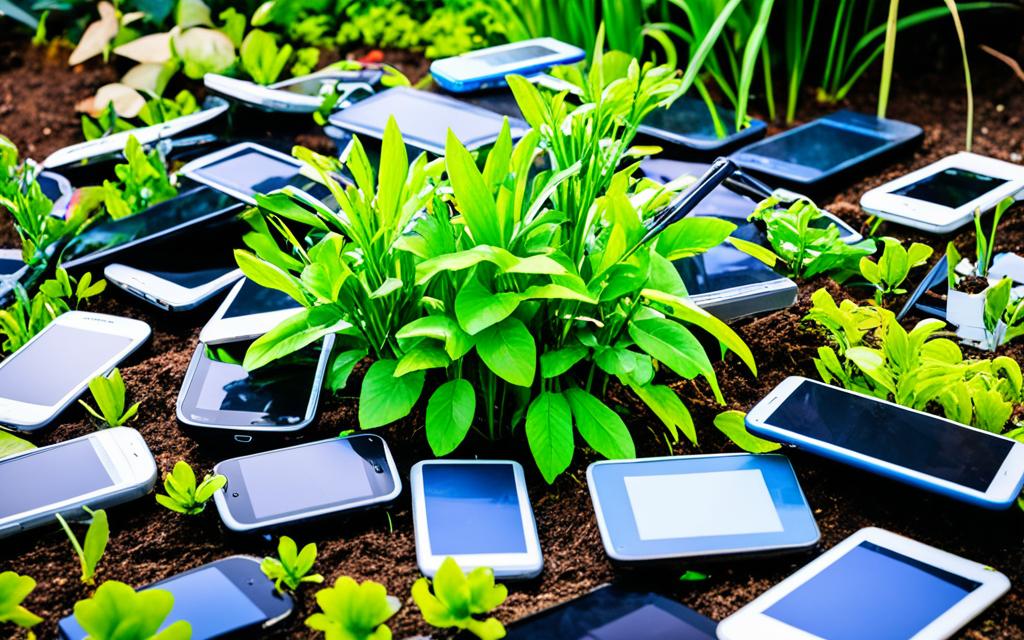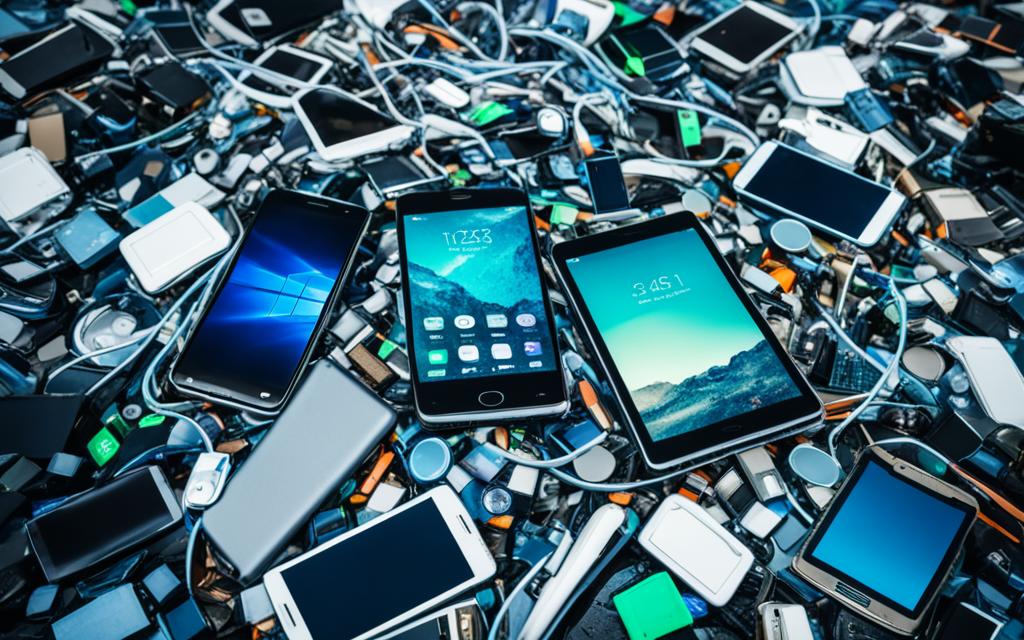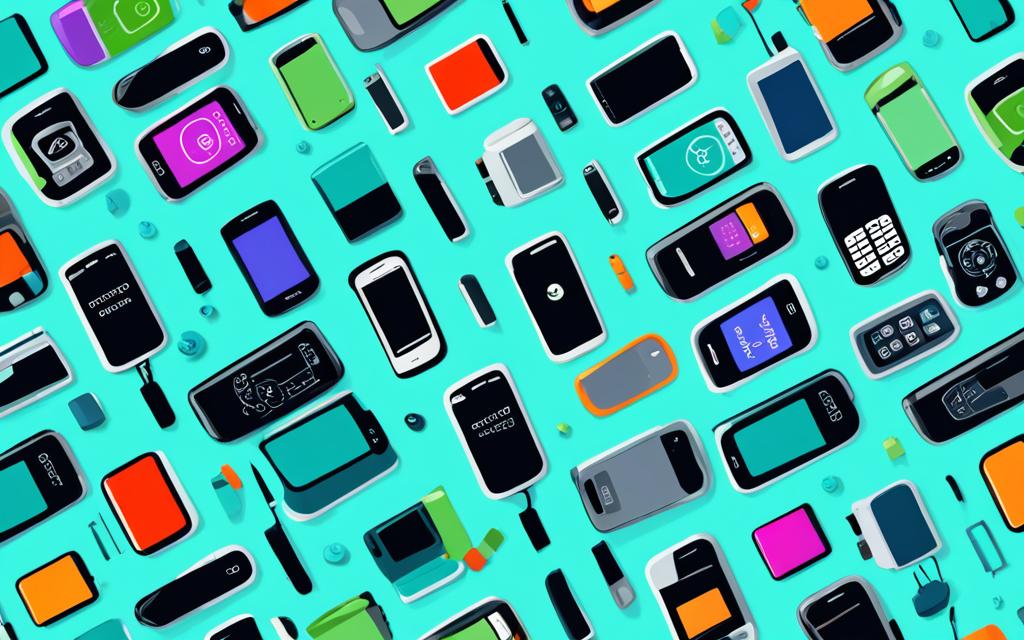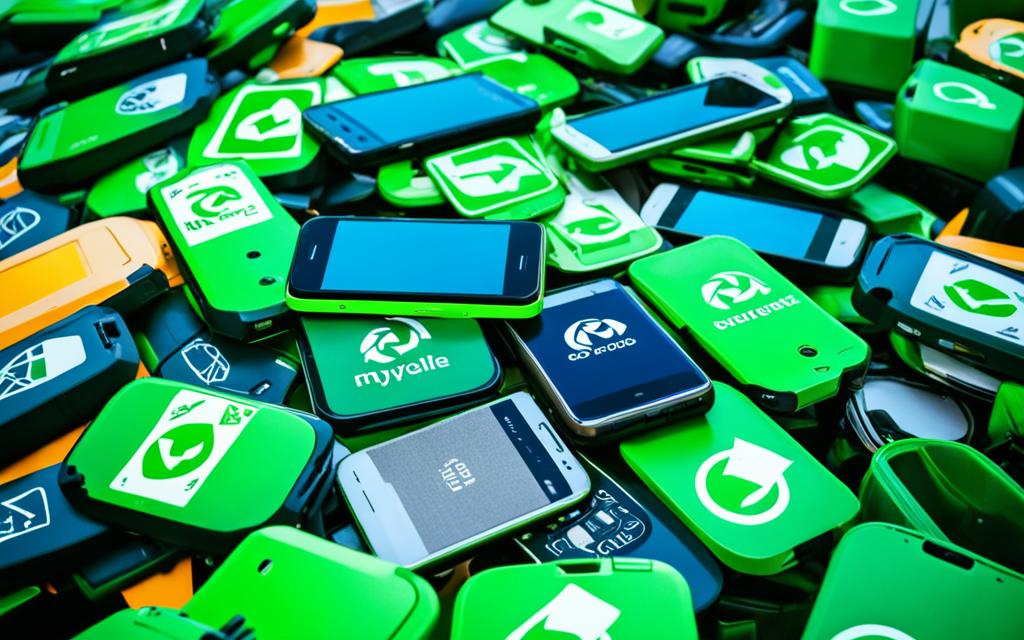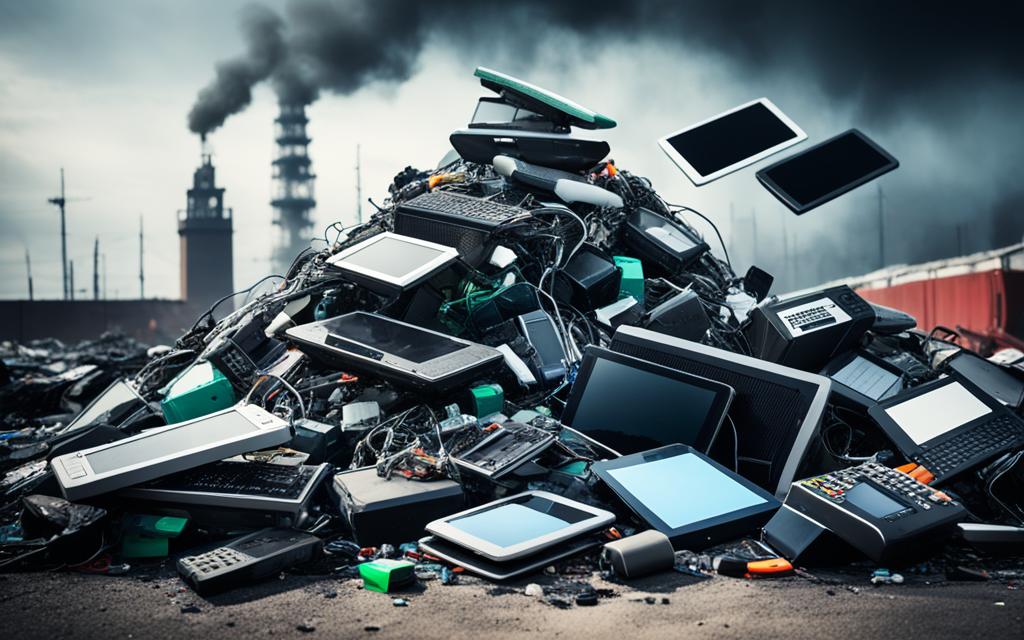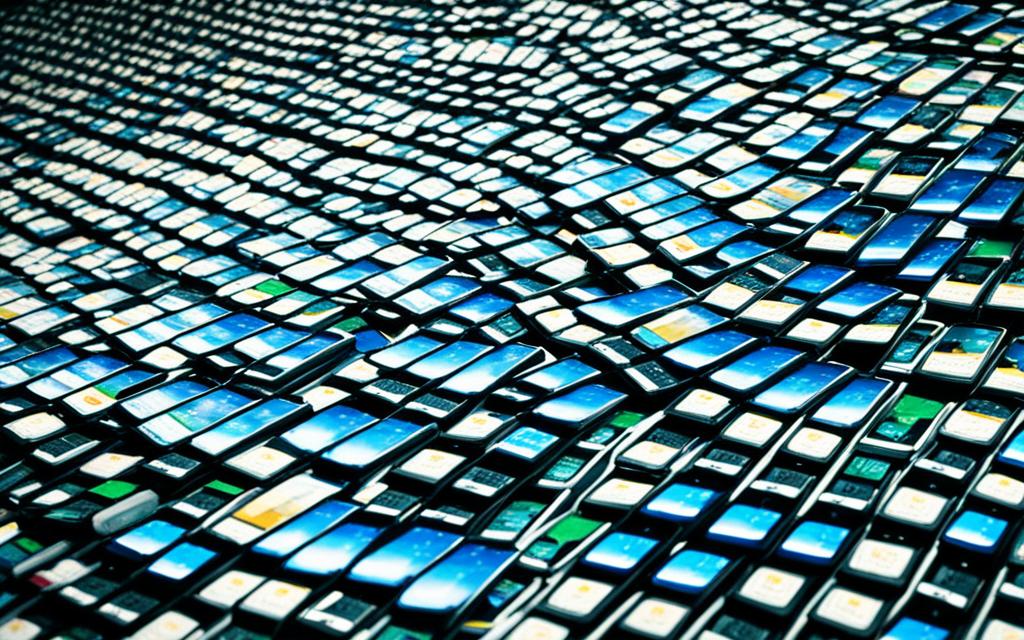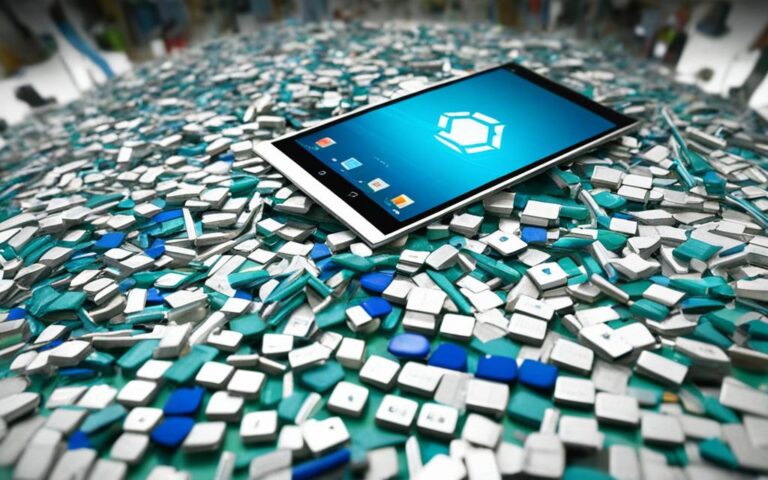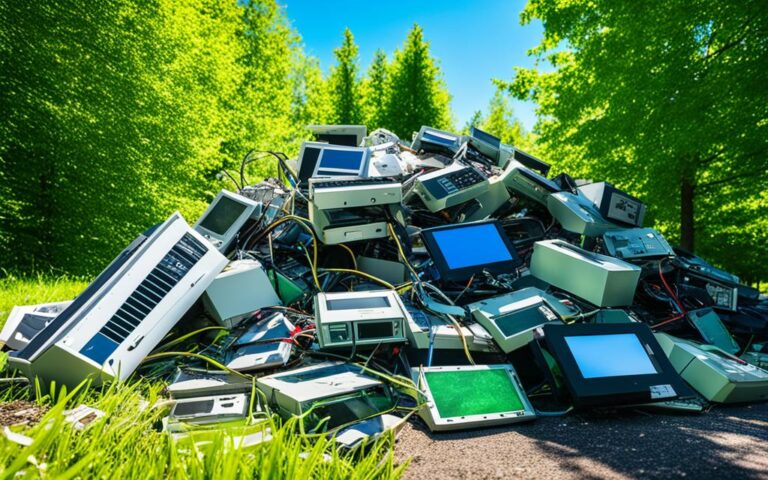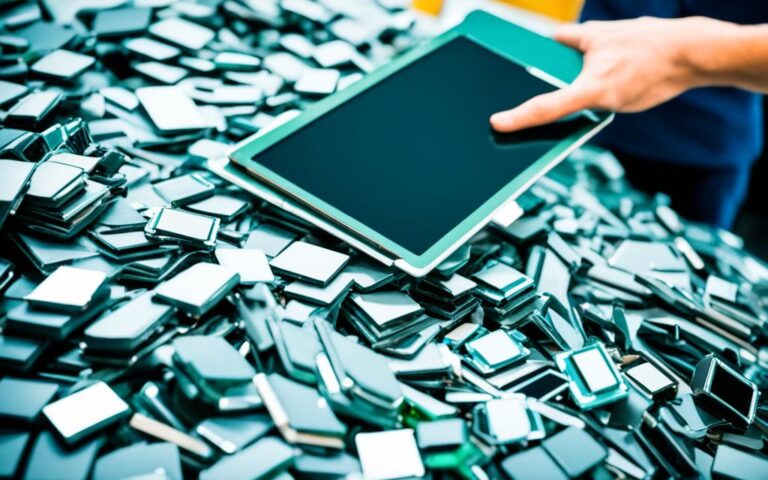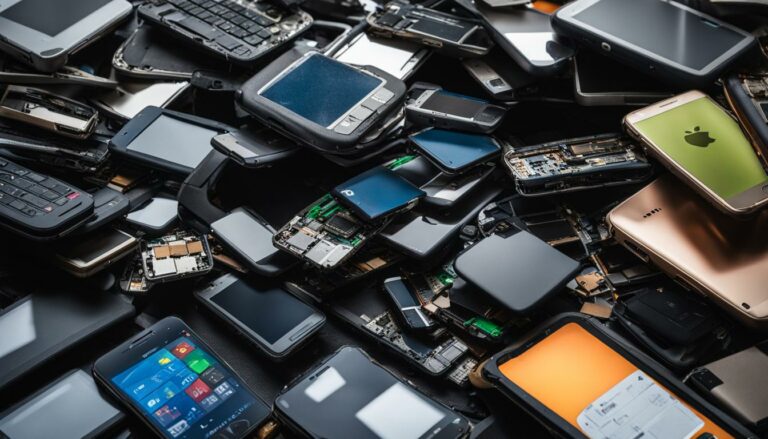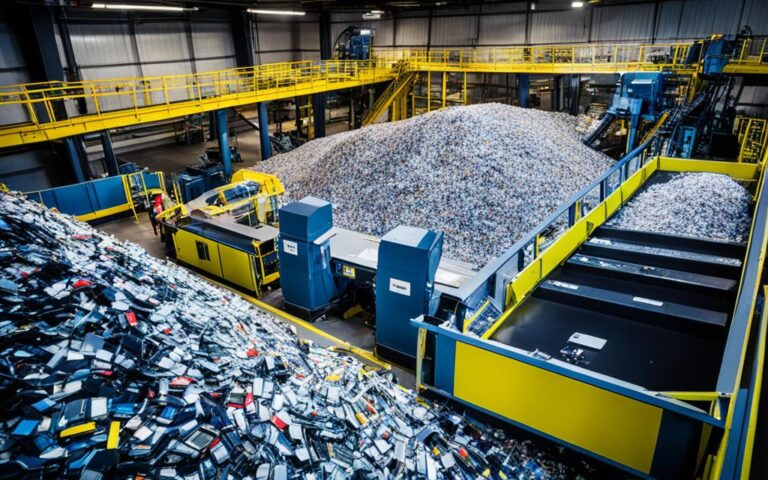How Recycled Phones and Tablets Support Circular Economy Principles
In today’s fast-paced world, technological advancements have led to a significant increase in electronic waste, including cell phones, computers, and tablets. This growing e-waste poses a serious threat to our environment and human health, as it contains hazardous substances that can contaminate ecosystems and contribute to climate change.
However, there is a way to tackle this issue and promote sustainability in the electronics industry. By embracing circular economy principles, businesses can create a positive impact on the environment while also reaping economic benefits. Circular economy is a concept that emphasizes recycling, reusing, and extending the lifecycle of products, instead of following the traditional linear model of “take, make, and dispose”.
When it comes to phones and tablets, recycling and refurbishing these devices play a crucial role in supporting circular economy principles. By recycling old phones and tablets, valuable materials such as precious metals and plastics can be recovered and used in the production of new devices, reducing the need for extracting raw materials and minimizing environmental impact.
Moreover, refurbishing phones and tablets allows them to be given a second life. Instead of ending up in landfills, these devices can be repaired, restored, and resold, providing affordable options for consumers and reducing electronic waste. Refurbished phones and tablets undergo rigorous quality checks and come with warranties, ensuring their reliability and performance.
By embracing circular economy principles in the electronics industry, particularly in the case of phones and tablets, businesses can make a significant difference. They can contribute to a more sustainable future by lowering environmental impact, reducing e-waste, and creating value from existing resources. It’s a win-win situation that benefits both the economy and the environment.
In the following sections, we will explore the environmental impact of e-waste, the implementation of circular economy business models, the role of refurbished phones in the circular economy, and the overall benefits of embracing circular economy principles in the electronics industry. Join us on this journey to discover how recycled phones and tablets can support a more sustainable and circular future.
The Environmental Impact of E-Waste
The amount of e-waste generated globally is increasing at an alarming pace, with approximately 53 million tonnes of e-waste generated in 2019 alone. This waste contains toxic additives and hazardous substances that can cause significant health risks. Only a small percentage of e-waste is formally collected and properly managed. Lack of recycling infrastructure, high costs, and low recycling rates contribute to the environmental impact of e-waste.
E-waste represents the world’s fastest-growing waste stream and poses a considerable threat to both human health and the environment. The improper disposal and management of e-waste lead to soil, air, and water pollution, compromising ecosystems and exacerbating climate change.
To fully comprehend the environmental impact of e-waste, it is important to delve into the consequences of its improper disposal:
Toxic Substances and Health Risks
E-waste contains harmful substances such as lead, mercury, cadmium, arsenic, and flame retardants. These toxic additives can contaminate soil and water sources, posing severe health risks to both humans and wildlife. Exposure to these substances can lead to respiratory problems, neurological disorders, reproductive issues, and even cancer.
Resource Depletion
The improper disposal of electronics waste not only poses health risks but also results in the inefficient use of precious resources. Elements like gold, silver, copper, and palladium, which are used in electronic devices, can be recovered through proper recycling methods. However, when electronics end up in landfills or are incinerated, these valuable resources go to waste, further exacerbating resource scarcity.
Climate Change Implications
Electronic devices often contain greenhouse gases and other substances that contribute to climate change. When e-waste is incinerated or decomposes in landfills, these gases are released into the atmosphere, contributing to the greenhouse effect. Additionally, the extraction and manufacturing processes involved in producing new electronic devices consume significant amounts of energy, contributing to carbon emissions.
Addressing the environmental impact of e-waste requires a multi-faceted approach. Governments, manufacturers, and consumers must collaborate to establish robust recycling infrastructure, reduce waste generation through sustainable design practices, and promote responsible e-waste disposal.
“Proper management of e-waste is not only crucial for safeguarding human health and the environment but also presents an opportunity to recover valuable resources and transition towards a more sustainable future.” – Environmental Activist
| Environmental Impacts of E-Waste | Solutions |
|---|---|
| Ecosystem pollution | Establishing recycling infrastructure |
| Resource depletion | Implementing sustainable design practices |
| Climate change contribution | Promoting responsible e-waste disposal |
Awareness and education are crucial in driving change. By understanding the environmental consequences of e-waste and choosing sustainable solutions, we can mitigate its impact and build a greener future.
Implementing Circular Economy Business Models
In today’s rapidly evolving business landscape, adopting circular economy business models is essential for companies looking to drive innovation, enhance sustainability, and stay competitive. Circular economy principles prioritize the redesign of product-service systems to maximize resource efficiency and minimize waste. When it comes to the electronics industry, companies have the opportunity to leverage alternative business models that support the circular economy, ultimately reducing environmental impact and promoting a more sustainable future.
The Shared Economy Model for Electronics
One of the key circular economy business models for electronics is the shared economy model. This model focuses on facilitating the sharing or renting of electronic devices instead of individual ownership. Companies like Rent-A-Gadget and ShareTech provide platforms that connect device owners with individuals or businesses in need of temporary access to electronics. By promoting sharing and collaboration, the shared economy model optimizes resource utilization, reduces electronic waste, and enables cost-savings for both consumers and businesses.
The Products-as-a-Service (PAAS) Model for Electronics
Another innovative approach is the products-as-a-service (PAAS) model, which offers electronic devices as a service rather than traditional ownership. Instead of purchasing a phone or tablet, consumers can subscribe to a service that provides them with the latest devices, maintenance, and technical support. This model incentivizes manufacturers to design longer-lasting and easily upgradable products, as they remain responsible for the devices’ performance and maintenance. By prolonging the lifespan of electronics and promoting responsible consumption, the PAAS model significantly reduces e-waste and encourages resource efficiency.
The Product Ownership Model Utilizing Principles of Product Life Extension (PLE) and Design for Recyclability (DFR)
The product ownership model focuses on extending the lifecycle of electronic devices through product life extension (PLE) strategies and design for recyclability (DFR) principles. PLE strategies include offering repair services, providing software updates for older devices, and encouraging consumers to trade in their old devices for newer models. DFR principles involve designing products with easier disassembly and recyclability in mind, ensuring that valuable components and materials can be recovered at the end of a device’s life. This model not only reduces waste and environmental impact but also creates economic opportunities in the recycling and refurbishment sectors.
By implementing circular economy business models, companies can contribute to a more sustainable and resource-efficient future. These models promote the reuse, sharing, and extended use of electronic devices, ultimately reducing waste, conserving resources, and minimizing environmental impact. However, the successful implementation of circular economy business models requires collaboration among manufacturers, consumers, and policymakers. Together, we can reshape the electronics industry and pave the way for a more sustainable and circular economy.
The Role of Refurbished Phones in the Circular Economy
Refurbishing phones is a sustainable option that prolongs their lifespan and reduces waste. In today’s fast-paced world, where technology evolves rapidly and new phone models are constantly released, the demand for affordable devices is high. Refurbished phones meet this demand while simultaneously helping to reduce electronic waste.
“Refurbished phones play a crucial role in creating a circular economy for electronic devices. By extending the life of these devices, we can reduce the environmental impact of production and disposal.”
Many companies, like Grest, recognize the value of refurbished phones and offer high-quality devices at affordable prices. These phones undergo rigorous quality checks to ensure they meet industry standards. Additionally, they come with warranties and after-sale services, providing customers with peace of mind.
Embracing refurbished phones can have a positive impact on both the economy and the environment. By choosing refurbished devices, consumers contribute to the circular economy by reducing waste, conserving resources, and minimizing their carbon footprint.
Benefits of Refurbished Phones
Here are some key benefits of opting for refurbished phones:
- Cost savings: Refurbished phones are often more affordable than brand new devices, allowing consumers to save money without compromising on quality.
- Sustainability: By choosing refurbished phones, customers actively participate in reducing electronic waste and promoting a more sustainable future.
- Quality assurance: Refurbished phones undergo thorough testing and quality checks, ensuring that they meet the highest standards of performance and reliability.
- Extended lifespan: Through refurbishment, phones that would otherwise be discarded are given a second life, maximizing their usefulness and minimizing environmental impact.
By embracing refurbished phones, individuals and businesses can contribute to the circular economy and play a part in fostering a more sustainable electronic industry.
| Benefits of Refurbished Phones | Traditional New Phones |
|---|---|
| Cost savings | Higher initial cost |
| Sustainability | Higher environmental impact |
| Quality assurance | Risk of manufacturing defects |
| Extended lifespan | Shorter product lifespan |
As we move towards a more sustainable future, the role of refurbished phones in the circular economy cannot be underestimated. By choosing refurbished devices, individuals contribute to reducing waste and lowering their environmental impact. Moreover, the availability of high-quality refurbished phones at affordable prices makes them an attractive option for consumers.
Next, we’ll explore the benefits of embracing circular economy business models in the electronics industry and how they can further enhance sustainability.
Conclusion
Embracing circular economy principles in the electronics industry, particularly in the case of phones and tablets, can have significant environmental and economic benefits. By adopting circular business models and promoting the reuse and refurbishment of electronic devices, businesses can lower their environmental impact, reduce e-waste, and create value.
Manufacturers, consumers, and governments must come together to implement and support circular economy strategies. This collaboration is crucial in building a more sustainable future. By working hand in hand, we can drive innovation, create new jobs, and protect the planet we call home.
Let us seize this opportunity to transform the electronics industry and make a positive impact on the world. Together, we can ensure that our resources are used efficiently and sustainably, reducing waste and protecting our environment for generations to come. Embracing circular economy principles is not just an option; it is a necessity for a better, brighter future.
FAQ
How do recycled phones and tablets support circular economy principles?
Recycled phones and tablets support circular economy principles by promoting the reuse and refurbishment of electronic devices. Rather than disposing of these devices, recycling them allows for the extension of their lifespan and reduces waste. This contributes to a more sustainable economy by minimizing the extraction of raw materials and reducing the environmental impact of manufacturing new devices.
What is the environmental impact of e-waste?
E-waste, such as discarded electronics like phones and tablets, has a significant environmental impact. E-waste contains toxic additives and hazardous substances that can cause health risks if not properly managed. Only a small percentage of e-waste is formally collected and recycled, leading to environmental contamination and resource depletion. The improper disposal of e-waste also contributes to the release of greenhouse gases and the pollution of air, water, and soil.
How can businesses implement circular economy business models?
Businesses can implement circular economy business models by redesigning their product-service systems. Three alternative business models that companies can leverage are the shared economy model for electronics, products-as-a-service (PAAS) model for electronics, and the product ownership model using principles of product life extension (PLE) and design for recyclability (DFR). These models focus on reusing and extending the lifecycle of electronic devices, reducing waste and environmental impact while creating value and enhancing market competitiveness.
What role do refurbished phones play in the circular economy?
Refurbished phones play a crucial role in the circular economy as they help prolong the lifespan of electronic devices and reduce waste. Companies like Grest offer high-quality refurbished phones at affordable prices, meeting the demand for affordable devices while reducing electronic waste. Refurbished phones undergo rigorous quality checks, come with warranties, and provide after-sale services. Embracing refurbished phones not only benefits the economy but also has a positive impact on the environment.
What are the benefits of embracing circular economy principles in the electronics industry, particularly in the case of phones and tablets?
Embracing circular economy principles in the electronics industry, particularly in the case of phones and tablets, can have significant environmental and economic benefits. By adopting circular business models and promoting the reuse and refurbishment of electronic devices, businesses can lower their environmental impact, reduce e-waste, and create value. This approach helps conserve resources, minimize pollution, and build a more sustainable future for the industry and the planet as a whole.

